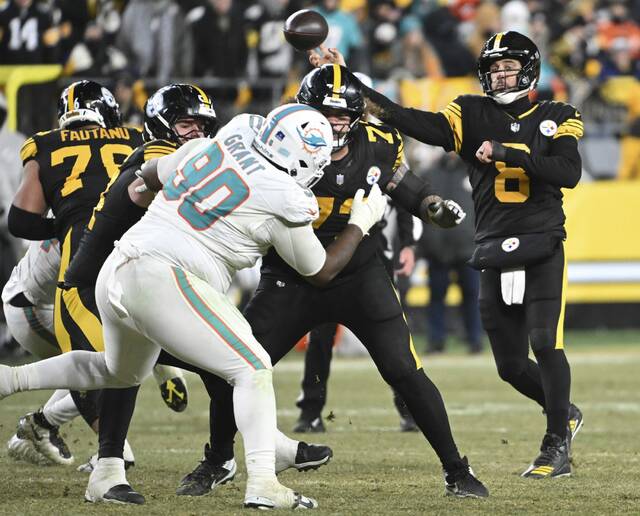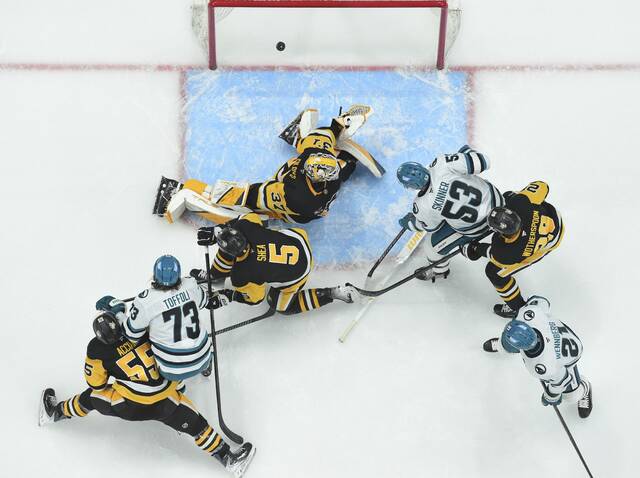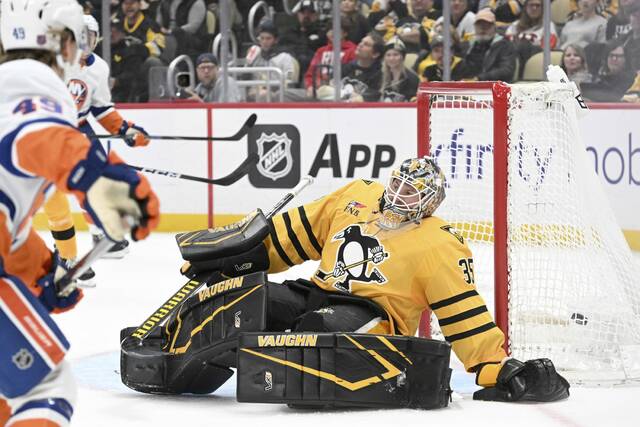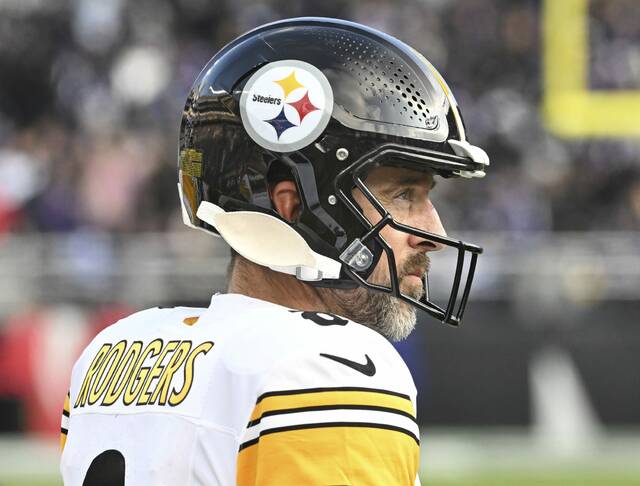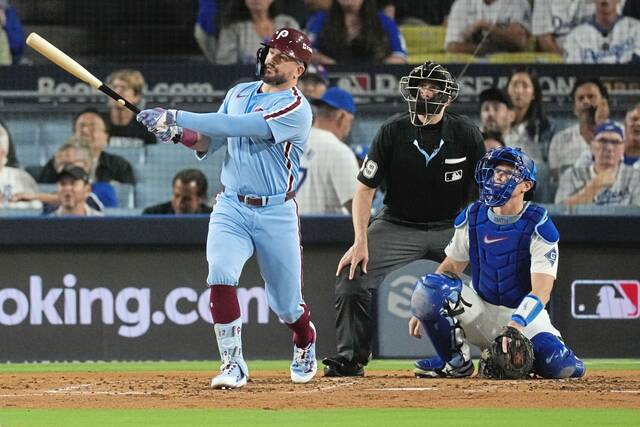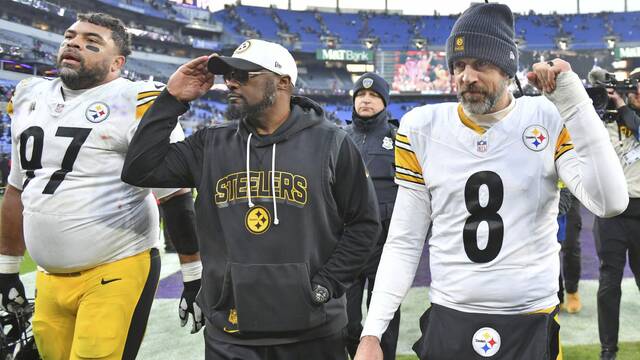Erik Karlsson spoke cryptically about the Penguins’ overtime failures after they lost thusly at Carolina on Saturday: “I have my theories, but I’ll keep it to myself.”
Karlsson’s teammates and coaches should want to hear Karlsson’s ideas or what just about anybody thinks. Two of the Penguins’ problems have hit critical mass.
The Penguins have reached three-on-three overtime nine times this season. They have won only once during that phase of play, failing to do so the last eight times. The Penguins are 1-5 in OT, 2-1 in subsequent shootouts.
That’s dangerous ground when you’re on the fringe of the playoff race. It’s also unacceptable for a team that has Karlsson and Kris Letang, two mobile and skilled defensemen who should give the Penguins a big edge three-on-three.
The Penguins rarely practice three-on-three. It shows.
The Penguins play the same way three-on-three as everybody does: maintain possession, stay ahead of the foe’s changes and play man-to-man defense. They’re just not good at it. They take bad shots and get embarrassed in transition.
That brings us to the power play, which ranks 26th in the NHL with a conversion rate of 13.9%. It’s not even as good as that piddling number.
The PP did its usual bumbling at Carolina: 0 for 4, including a 27-second five-on-three advantage.
Karlsson should speak up about the power play, not just three-on-three overtime.
When Karlsson joined the Penguins, he was the most talented power-play point man of his generation. Now he’s just another insidiously bad performer in a clueless gong show, the master of the forced shot-pass that leads to nothing.
The power play should be restructured as per Karlsson’s abilities. He’s got more acumen with the man-advantage than anyone on the team.
Instead, Karlsson fits right in: botched zone entries, horrible turnovers at the blue line, bad passes and too many passes. Never simplify unless desperation beckons, and usually not even then.
But Karlsson isn’t the biggest problem on the power play.
That’s Evgeni Malkin.
He’s the biggest problem three-on-three, too. He’s too slow to play three-on-three and is lackadaisical about the specifics.
On the power play, Malkin personifies what the Penguins do wrong: He passes up shots, overcomplicates, is non-existent in puck retrieval and creating net-front traffic. Malkin leads the charge in looking for the back-door tap-in that never comes. (Actually, it happens just often enough that the Penguins keep thrashing mindlessly at the bait. Like Rickard Rakell’s tally of that ilk last Monday at Philadelphia.)
The Penguins’ power play is designed to reward ego, star power and lifetime achievement, not assemble the best functioning unit.
That’s why Malkin remains on the right half-wall despite a one-timer that he doesn’t take often enough and doesn’t sizzle like it used to when he does.
Letang got cut out of the top power play. Malkin didn’t. That’s because Letang won’t get the boo-boo face. His lifetime achievement thus doesn’t matter.
Assistant coach Todd Reirden oversees the power play. He can’t be blameless. But he’s not telling the players to commit the sins they’re guilty of. Reirden is saddled with a group that thinks it knows better even as rotten results multiply.
The Penguins have too much talent to fail miserably in three-on-three and on the power play. It’s an indictment of the coaching staff and is grounds for firing somebody. If the players won’t listen, change the voice.
Here’s how I’d re-design the power play: Put Crosby on the right half-wall, Karlsson up top, Letang on the left half-wall, Rakell in the bumper and Jeff Carter as the net-front presence. You’d have an elite playmaker getting lots of touches and facing four right-handed shots. You’d have players slotted in specific roles that fit them.
Would it work?
It certainly couldn’t be worse.
Will it happen?
No. Because Malkin and Jake Guentzel would get dropped to the second unit, and that can’t happen.
That’s no criticism of Guentzel. He’d also be best on the right half-wall, but that’s a long line. Instead, Guentzel gets put near the net where he takes a beating but performs admirably. His quickness and anticipation make him good on puck retrieval.
But a power play is about the best blend. It’s not an all-star team.
Malkin, Guentzel and Bryan Rust on the No. 2 power-play unit matched up against the opposition’s secondary penalty-kill wouldn’t be a bad thing.
To make an omelet, you’ve got to break eggs. The Penguins’ power play currently looks like the food fight scene in “Animal House.”
The season is half over. These aren’t slumps. This is reality.
Boy, I get tired of writing this column.



